Dacia Sandero vs VW Caddy – Which one offers the better deal?
Both models have their strengths – but which one suits you more?
Compare performance, efficiency, price and space directly: Dacia Sandero or VW Caddy?
Costs and Efficiency:
When it comes to price and running costs, the biggest differences usually appear. This is often where you see which car fits your budget better in the long run.
Dacia Sandero has a significantly advantage in terms of price – it starts at 10700 £, while the VW Caddy costs 27800 £. That’s a price difference of around 17054 £.
Fuel consumption also shows a difference: VW Caddy manages with 0.50 L and is therefore clearly more efficient than the Dacia Sandero with 5.30 L. The difference is about 4.80 L per 100 km.
Engine and Performance:
Power, torque and acceleration say a lot about how a car feels on the road. This is where you see which model delivers more driving dynamics.
When it comes to engine power, the VW Caddy has a noticeable edge – offering 150 HP compared to 110 HP. That’s roughly 40 HP more horsepower.
In acceleration from 0 to 100 km/h, the Dacia Sandero is slightly quicker – completing the sprint in 10 s, while the VW Caddy takes 11.40 s. That’s about 1.40 s faster.
In terms of top speed, the VW Caddy performs barely noticeable better – reaching 186 km/h, while the Dacia Sandero tops out at 183 km/h. The difference is around 3 km/h.
There’s also a difference in torque: VW Caddy pulls evident stronger with 320 Nm compared to 200 Nm. That’s about 120 Nm difference.
Space and Everyday Use:
Whether family car or daily driver – which one offers more room, flexibility and comfort?
Seats: VW Caddy offers distinct more seating capacity – 7 vs 5.
In curb weight, Dacia Sandero is convincingly lighter – 1089 kg compared to 1575 kg. The difference is around 486 kg.
In maximum load capacity, the VW Caddy performs significantly better – up to 3700 L, which is about 2592 L more than the Dacia Sandero.
When it comes to payload, VW Caddy evident takes the win – 710 kg compared to 436 kg. That’s a difference of about 274 kg.
Who comes out on top?
Overall, the VW Caddy shows itself to be wins the duel decisively and secures the title of DriveDuel Champion.
It convinces with the more balanced overall package and proves to be the more versatile choice for everyday use.
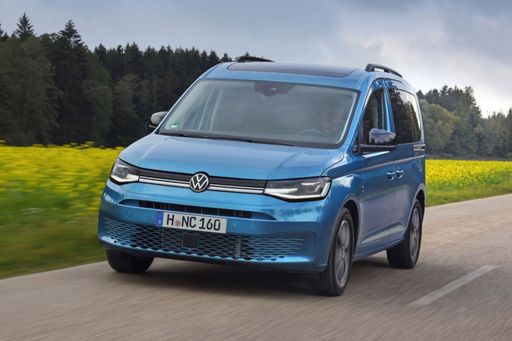
VW Caddy
Dacia Sandero
The Dacia Sandero stands out as an exceptional value in the hatchback market, offering a blend of practicality and affordability that appeals to a wide range of drivers. Its understated design is complemented by a surprisingly spacious interior, providing ample comfort and functionality for everyday use. With impressive fuel efficiency and a solid reputation for reliability, the Sandero remains a popular choice for those seeking a no-nonsense vehicle without sacrificing essential modern features.
details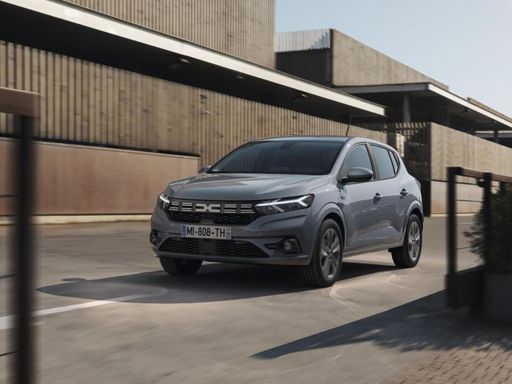 @ dacia.at
@ dacia.at
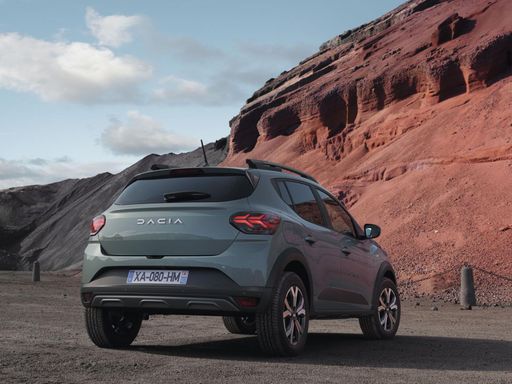 @ dacia.at
@ dacia.at
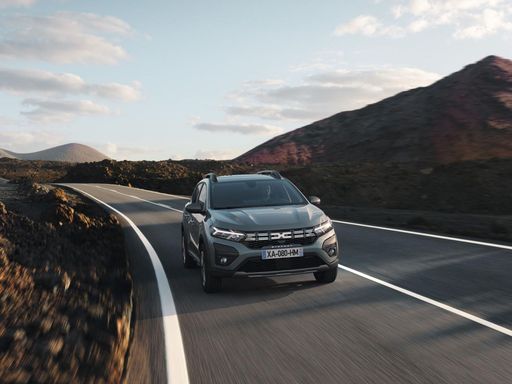 @ dacia.at
@ dacia.at
VW Caddy
The VW Nutzfahrzeuge Caddy Hochdach-Kombi is a versatile choice for those seeking extra space and practicality in their everyday vehicle. With its functional high roof and adaptable interior, it easily accommodates both passengers and cargo. The Caddy also stands out with its modern design and features aimed at providing comfort and convenience on the road.
details @ vwpress
@ vwpress
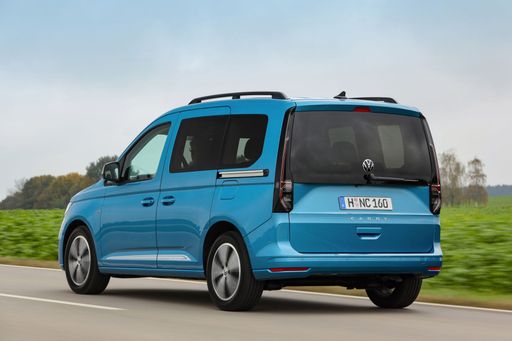 @ vwpress
@ vwpress
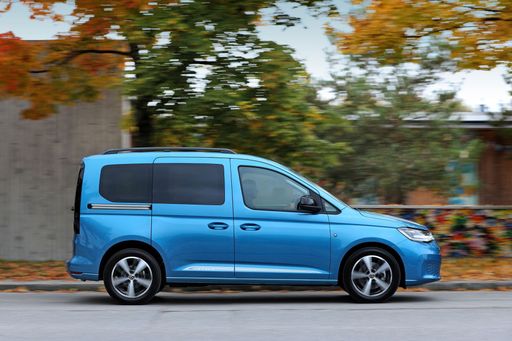 @ vwpress
@ vwpress
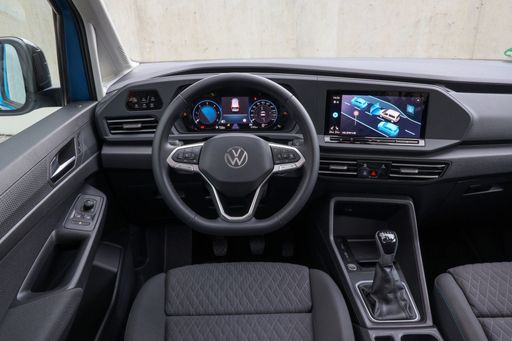 @ vwpress
@ vwpress

|

|
|
|
|
Costs and Consumption |
|
|---|---|
|
Price
10700 - 16700 £
|
Price
27800 - 45900 £
|
|
Consumption L/100km
5.3 - 7.1 L
|
Consumption L/100km
0.5 - 6.9 L
|
|
Consumption kWh/100km
-
|
Consumption kWh/100km
-
|
|
Electric Range
-
|
Electric Range
116 - 121 km
|
|
Battery Capacity
-
|
Battery Capacity
19.70 kWh
|
|
co2
105 - 140 g/km
|
co2
10 - 165 g/km
|
|
Fuel tank capacity
32 - 50 L
|
Fuel tank capacity
50 L
|
Dimensions and Body |
|
|---|---|
|
Body Type
Hatchback
|
Body Type
High Roof Estate
|
|
Seats
5
|
Seats
5 - 7
|
|
Doors
5
|
Doors
5
|
|
Curb weight
1089 - 1209 kg
|
Curb weight
1575 - 1998 kg
|
|
Trunk capacity
328 L
|
Trunk capacity
-
|
|
Length
4088 - 4099 mm
|
Length
4500 - 4853 mm
|
|
Width
1848 mm
|
Width
1855 mm
|
|
Height
1499 - 1535 mm
|
Height
1819 - 1860 mm
|
|
Max trunk capacity
1108 L
|
Max trunk capacity
2556 - 3700 L
|
|
Payload
404 - 436 kg
|
Payload
501 - 710 kg
|
Engine and Performance |
|
|---|---|
|
Engine Type
Petrol, LPG
|
Engine Type
Petrol, Diesel, Plugin Hybrid
|
|
Transmission
Manuel, Automatic
|
Transmission
Manuel, Automatic
|
|
Transmission Detail
Manual Gearbox, CVT
|
Transmission Detail
Manual Gearbox, Dual-Clutch Automatic
|
|
Drive Type
Front-Wheel Drive
|
Drive Type
Front-Wheel Drive, All-Wheel Drive
|
|
Power HP
67 - 110 HP
|
Power HP
102 - 150 HP
|
|
Acceleration 0-100km/h
10 - 16.7 s
|
Acceleration 0-100km/h
11.4 - 14 s
|
|
Max Speed
158 - 183 km/h
|
Max Speed
173 - 186 km/h
|
|
Torque
95 - 200 Nm
|
Torque
220 - 320 Nm
|
|
Number of Cylinders
3
|
Number of Cylinders
4
|
|
Power kW
49 - 81 kW
|
Power kW
75 - 110 kW
|
|
Engine capacity
999 cm3
|
Engine capacity
1498 - 1968 cm3
|
General |
|
|---|---|
|
Model Year
2024 - 2025
|
Model Year
2024
|
|
CO2 Efficiency Class
D, C, E
|
CO2 Efficiency Class
E, F, B
|
|
Brand
Dacia
|
Brand
VW
|
What drive types are available for the Dacia Sandero?
The Dacia Sandero is available as Front-Wheel Drive.
The prices and data displayed are estimates based on German list prices and may vary by country. This information is not legally binding.
